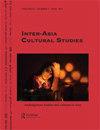The new dynamics between the state, local ideals, and (anti-)corruption: an ethnographic study of the ethical practices of China's pharmaceutical industry
IF 0.4
4区 社会学
Q4 ANTHROPOLOGY
引用次数: 0
Abstract
ABSTRACT The infamous GlaxoSmithKline (GSK) bribery case of 2013 led to the emergence of compliance management as a local strategic response to ensuring compliance with regulations in the transnational pharmaceutical corporations within China. However, China's pharmaceutical industry has a long history of practicing the corrupt customs of “drug-incentivizing medicine” (yiyao buyi) and “guanxi-based sales” (guanxi xiaoshou), which are, obviously, at odds with the highest ethical standards for compliance management as well as the principle of the anti-corruption campaign of the current Chinese administration. Based upon an in-depth ethnographic work from China's pharmaceutical industry, this article proposes a new framework to examine the complicated dynamics of interaction between the state's anti-corruption policy, corrupt long-standing customary industrial practices, local cultural practice, and global compliance management norms in post-socialist spaces. Different from some studies that focus on the resistance to global norms by local forces, this study suggests a reverse direction and focuses on the positive reconstruction of the old socialist ideals and corrupt practices by modern disciplinary institutions with the capitalist work ethic in the Chinese workplace.国家、地方理想和(反)腐败之间的新动力:中国制药行业道德实践的民族志研究
2013年臭名昭著的葛兰素史克(GSK)贿赂案导致合规管理作为确保在华跨国制药公司遵守法规的本地战略对策的出现。然而,中国制药行业长期以来一直奉行“以药促药”和“以关系为基础销售”的腐败习俗,这显然与合规管理的最高道德标准以及当前中国政府反腐败运动的原则不符。基于对中国制药行业的深入研究,本文提出了一个新的框架来审视后社会主义空间中国家反腐败政策、腐败的长期习惯工业实践、地方文化实践和全球合规管理规范之间复杂的互动动态。与一些研究关注地方力量对全球规范的抵制不同,本研究提出了一个相反的方向,重点关注中国职场中资本主义职业道德的现代纪律机构对旧的社会主义理想和腐败行为的积极重建。
本文章由计算机程序翻译,如有差异,请以英文原文为准。
求助全文
约1分钟内获得全文
求助全文
来源期刊

Inter-Asia Cultural Studies
Multiple-
CiteScore
0.90
自引率
20.00%
发文量
22
期刊介绍:
The cultural question is among the most important yet difficult subjects facing inter-Asia today. Throughout the 20th century, worldwide competition over capital, colonial history, and the Cold War has jeopardized interactions among cultures. Globalization of technology, regionalization of economy and the end of the Cold War have opened up a unique opportunity for cultural exchanges to take place. In response to global cultural changes, cultural studies has emerged internationally as an energetic field of scholarship. Inter-Asia Cultural Studies gives a long overdue voice, throughout the global intellectual community, to those concerned with inter-Asia processes.
 求助内容:
求助内容: 应助结果提醒方式:
应助结果提醒方式:


